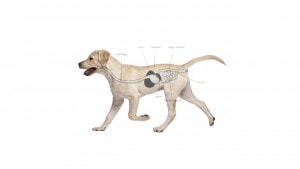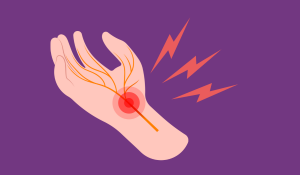Pets, like humans, may suffer from a variety of conditions for which CBD can help: anxiety, inflammation, pain, and even epilepsy, among others. CBD has been less studied in pets than humans, but there is evidence that it can be helpful. Side effects may include dry mouth, lowered blood pressure, drowsiness, and more. It is important to consult with a vet before giving CBD to your pet.
Many pet owners may be interested in using CBD for their pets. CBD is known to have many therapeutic properties in humans — including anti-inflammatory properties, anti-anxiety properties, pain relieving properties, and more — and many owners may wish to apply these effects to their pets in safe and natural ways.
While research on the effects of CBD on pets is far less substantial than that in humans — leading many owners to ask: can CBD be harmful for pets? — the fact is that there is considerable anecdotal evidence, and some clinical evidence, that CBD can be well-tolerated by many pets.
Research on CBD’s effect on pets remains somewhat limited. However, some studies have been done. One study on CBD for pets showed no significant adverse effects on cats and dogs; however, the study did suggest that ingesting CBD might be less well-tolerated by cats.
CBD is generally used in pets to treat similar conditions to those humans experience: stress, anxiety, pain, inflammation, and more. CBD may also help with more complex conditions in pets (as with humans): one study suggested that CBD might have some effect on epilepsy in dogs.
In both humans and animals, CBD may produce a variety of side effects: dry mouth, lowered blood pressure, drowsiness, diarrhea, changes in some liver enzymes, and other, similar effects. If your pet is taking CBD, it is vitally important to pay close attention to their response, and stay on top of any potentially adverse effects related to CBD consumption.
Above all, it is extremely important to consult with your vet before using CBD for your pet. While it is often likely that CBD’s effects on your cat, dog, or other animal will be mild, the lack of clinical research on CBD in pets should be considered. Your vet may suggest other treatments for addressing problems your pet is having. Your vet can also help highlight the importance of the right dosage of CBD for pets, as pet dosage will likely be considerably less than human dosage.

Explore this cbd consumption methods tutorial and follow the step-by-step process to select, use, and verify the safest ways to consume CBD for wellness.
Read More
Learn what CBD edibles are, their main types, expected effects, legal status, safety factors, and how they compare to other forms of CBD.
Read More
Therapeutic Uses of CBD Managing Chronic Pain with CBD Struggling with chronic pain? CBD might help. Studies suggest it can reduce inflammation and alleviate discomfort,...
Read More
Just as CBD may help humans due to its interaction with the body’s endocannabinoid system, the same is true of dogs. CBD has the potential...
Read More
Cannabis has been used for millennia to treat numerous health conditions. Current research offers promising results on the effects of CBD oil on breast cancer.
Read More
What Is CBD for Cats? CBD (Cannabidiol) is a natural compound from hemp. It’s non-psychoactive, meaning your cat won’t get “high.” Instead, it works with...
Read More
1. Understanding Neuropathic Pain Neuropathic pain results from nerve damage or dysfunction, causing symptoms like burning, tingling, or sharp shooting pains. Common Causes: Symptoms Include:...
Read More
CBD for Pets: A Pet Parent’s Guide to Dosage We all want the best for our pets, especially when they’re struggling with pain, anxiety, or...
Read More
What Is Lupus? Lupus is a long-term autoimmune condition that can impact multiple organs, including the skin, heart, lungs, and kidneys. The most common type...
Read More
1. Full-Spectrum CBD: The All-In-One Option What it is: Contains CBD, minor cannabinoids, terpenes, flavonoids — and less than 0.3% THC. Why choose it: Promotes...
Read More